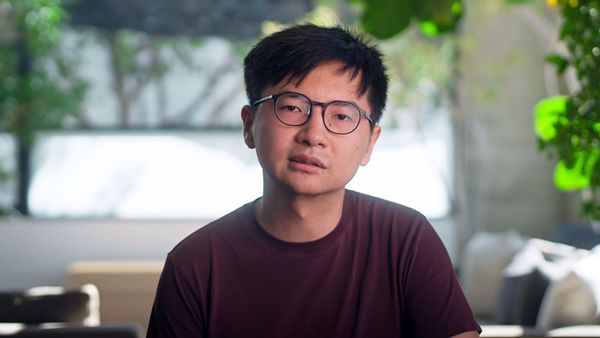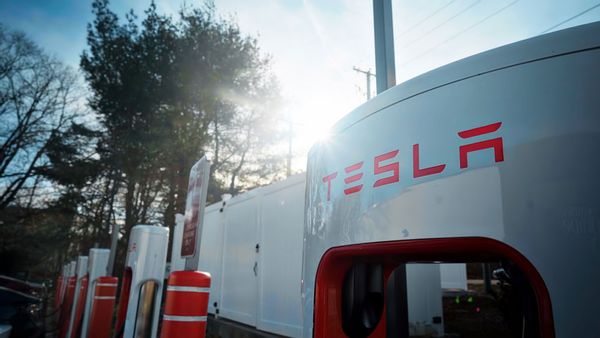“Elon Musk’s Crash Course” warns of the danger of a billionaire’s love of being unreasonable
Examining each time one of Tesla CEO and SpaceX founder Elon Musk’s outlandish assurances is contradicted by reality would take many more hours than the duration allotted for “Elon Musk’s Crash Course.” His fan congregation believes he can do no wrong, yet his horrific reputation as an employer could fuel a larger limited series (which, let’s not fool ourselves, is going to happen someday).
Until then, we have works like this entry in FX’s “New York Times Presents” series, along with reams of accounts describing, for example, the segregated, racially hostile conditions at Tesla’s Fremont factory.
Or SpaceX’s careless takeover of the Texas coastal town where its rocket production facility and test site is located. (“For better or worse, Boca Chica belongs to Elon now,” a Texas Monthly piece published a year ago resignedly concedes.)
Then there’s the present concern surrounding his impending Twitter acquisition which, if it goes through, threatens and promises to place control of the globe’s most ubiquitous communications platform in his hands, and likely without much oversight.
RELATED: April Reign: FCC should protect Twitter
“Elon Musk’s Crash Course” isn’t about Twitter, although the platform receives prominent mention around 58 minutes in, primarily to show how he exploits it to amplify his celebrity. Given the present anxiety surrounding Musk’s impending takeover of the social media giant, I’m sure plenty will wish this installment ripped into that story instead of the potentially hazardous flaws in Tesla’s Autopilot system.
All of it circles back to the central sentiment of Musk’s favorite mantra, quoted by former Tesla president Jon McNeill: “History is changed by unreasonable men.”
Sit through the first 15 minutes, however, and it’s easy to extrapolate that Musk carries that same arrogance and carelessness into all of his endeavors, whether he’s promising unfettered free speech on Twitter, or declaring that technology for self-driving cars is essentially a “solved problem” when reality has proven it is not.
All of it circles back to the central sentiment of Musk’s favorite mantra, quoted by former Tesla president Jon McNeill: “History is changed by unreasonable men.” It isn’t surprising in the least that the richest man in the world sees that as a virtue.
Director Emma Schwartz, who builds the installment around Cade Metz’s and Neal Boudette’s reporting in the New York Times, starts the episode by showing the human cost of such men’s desires to be immortalized.
The first person to pay that price was Josh Brown, a technology-loving veteran from Canton, Ohio. Brown chronicled his experiences with his Tesla’s Autopilot function in a series of videos depicting him testing how his vehicle responded to various situations on the road. Musk shared one of Brown’s videos on his Twitter feed, making it go viral.
Not long after that, in May 2016, Brown was killed in a crash on a Florida highway resulting from a tractor-trailer turning left in front of his car, and the car failing to apply the brakes. The episode opens with photos of that wreck, showing the remains of Brown’s Tesla, top completely sheared off, as disturbing audio of 911 calls related to the crash play in the background.
Brown was the first known fatality in a supposedly self-driving car. He would not be the last. And proving his own unreasonable nature, Musk’s and Tesla’s first reaction was to blame user error and float false speculations that Brown wasn’t paying attention to the road.
Beginning the documentary’s in the thick of that wreckage establishes its slant, which you can be certain Musk will point out if he deigns to comment on it at all. Musk did not respond to multiple interview requests, the filmmaker indicates at the end, although there’s plenty of footage from public events and interviews to draw upon. Some of those videos are further contextualized by former Tesla engineers who worked for the company around the same time as Brown’s fatal accident. Each man’s statements are measured; none instills confidence in either Musk’s or Autopilot’s integrity.
 Raven Jiang in The New York Times Presents “Elon Musk’s Crash Course” (FX)
Raven Jiang in The New York Times Presents “Elon Musk’s Crash Course” (FX)
The billionaire’s fan cult isn’t going to be happy with “Elon Musk’s Crash Course,” obviously, even Schwartz’s work is less of a takedown than a shove. It functions best as a cursory introduction to who Musk is, skimming his origin story as a wunderkind programmer with aims to shape the Internet and an entrepreneur who built his fortune by founding companies, selling them, and starting new ones. (Among his most ubiquitously used creations is PayPal, for example.)
But most people are aware of the man’s profile and shudder at his giddy insistence on seizing the spotlight. In that respect, Schwartz is careful about preventing the film’s emotional tone from running into the red, but the result is that it often feels bloodless.
One of the reasons people are infatuated with Musk is that he says cool things and makes you believe in them.
Instead “Elon Musk’s Crash Course” uses Musk’s grandest pronouncements against him, showing the times that his guarantees were too ambitious for his engineers to realize. One who agrees to be interviewed, Raven Jiang, observes that his time working at Tesla made him question the morality of his mission as a result of watching his teammates being dismissed and the excuses about Autopilot’s failures that were being sold to the public.
Without succumbing to too much flash, Schwartz organizes “Elon Musk’s Crash Course” to connect Musk’s corporate ethos and the pressure placed on engineers to the consumers who may live or die by his products. Two of them, Tesla beta tester Kim Paquette and Alex Poulos, who own one of its cars, capture a range of emotions in their testimonials. Paquette is enthusiastic, extolling the uniqueness of the Tesla community among car owners. Poulos is less so mainly because, as he says, he was sold a car that was supposedly self-driving only to realize that wasn’t true and isn’t likely to be anything soon.
He also gives us a glimpse into the mind of Musk’s devoted followers, explaining that he used to put the man on a pedestal. From the way he shares that observation, that doesn’t seem to be the case anymore.
 Tesla storefront in The New York Times Presents “Elon Musk’s Crash Course” (FX)This also demonstrates Musk’s charisma both inside his company and to the public. A former project manager explains that one of the reasons people are infatuated with Musk is that he says cool things and makes you believe in them.
Tesla storefront in The New York Times Presents “Elon Musk’s Crash Course” (FX)This also demonstrates Musk’s charisma both inside his company and to the public. A former project manager explains that one of the reasons people are infatuated with Musk is that he says cool things and makes you believe in them.
Metz seconds that, linking it to Musk’s willingness to test the enormous grey areas in the realm of innovation: “It’s very easy for him to say anything, and nobody checks him on it.” (Tesla is currently under two federal investigations related to Autopilot.)
At one point McNeill recalls speaking to a Tesla investor who also held a major stake in Big Pharma, and who described the path ahead of the company as virtuous but difficult. In the pharmaceutical industry, the man explained, it’s expected that people in drug trials will die, but that those deaths happen outside of the spotlight. Whereas the mistakes in Autopilot will happen on the highway, and everyone will see them.
Nowadays, however, it’s impossible to guess whether consumers would be deterred by that. Brown died in 2016, and others have suffered fatal accidents alleged to be connected to Autopilot’s malfunctions, and the car company’s trillion-dollar valuation barely sustained a bump. Teslas remain among the most sought-after cars on the road due in part to the aura of success and excess that Musk cultivates.
Want a daily wrap-up of all the news and commentary Salon has to offer? Subscribe to our morning newsletter, Crash Course.
Apply the same corporate approach to the way Musk potentially may run Twitter, and you can understand why its responsible, reasonable users are concerned about the likely rise in harassment, doxxing, and misinformation proliferation.
The argument is that Twitter is a communications platform. The risk posed by self-driving car technology involves humans behind the wheel and the drivers sharing the road with them.
People watched Josh Brown die in front of them, it’s true. They will not see scores of people being radicalized perhaps to the point of killing other people or fomenting insurrection. And when that happens, and the path is demonstrated to lead back to or through Twitter, how easily will Musk deny culpability instead of taking steps to prevent future violence or assaults on democracy?
What this documentary shows us isn’t encouraging, even as it helps us to better comprehend the thinking of a man described as wanting to “make a dent in the world.” We simply won’t know the extent to which the world can recover from that impact until it happens.
“Elon Musk’s Crash Course” premieres Friday, May 20 at 10 p.m. on FX and Hulu. Watch a trailer for it below, via YouTube.
More stories like this:

